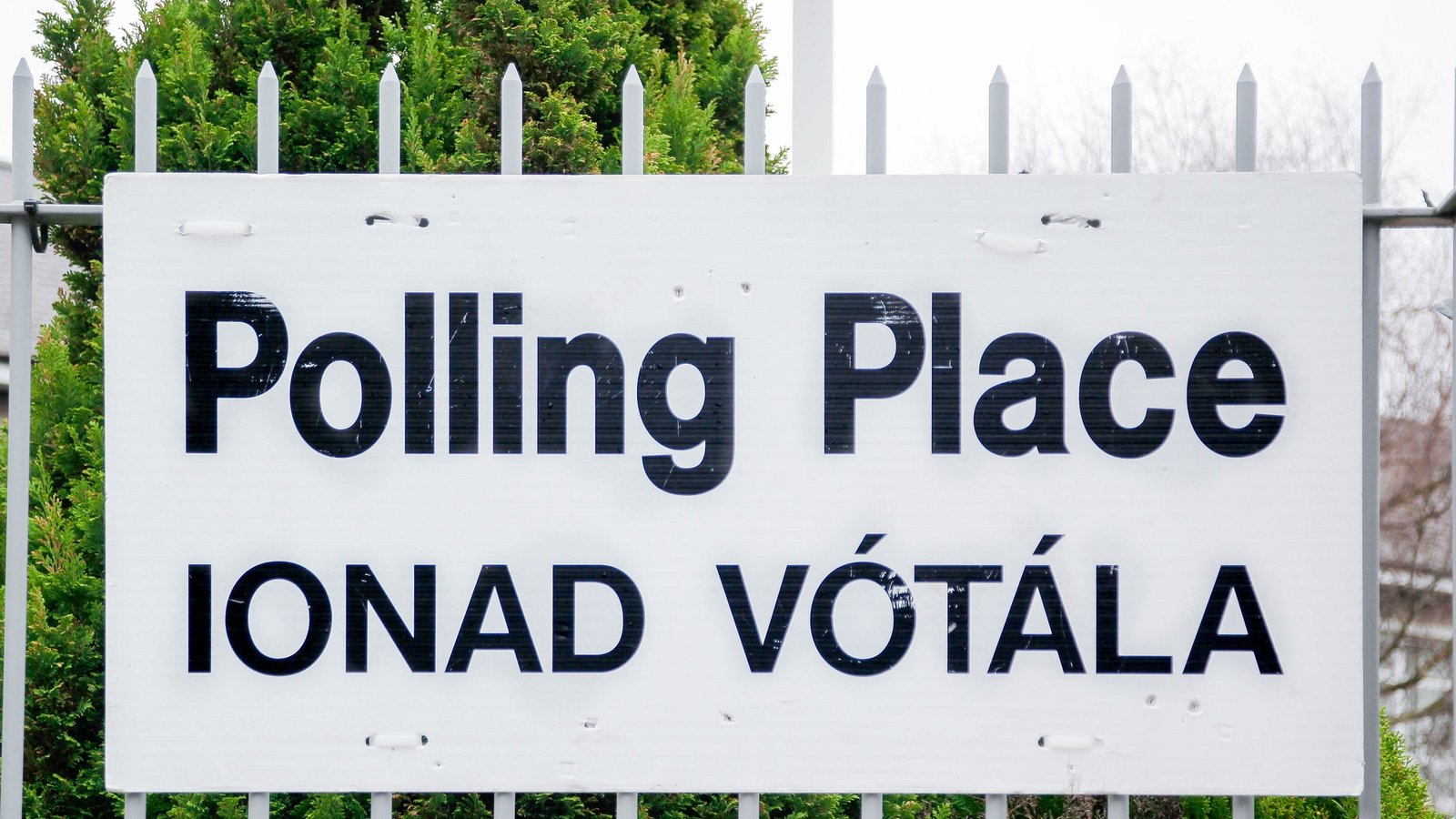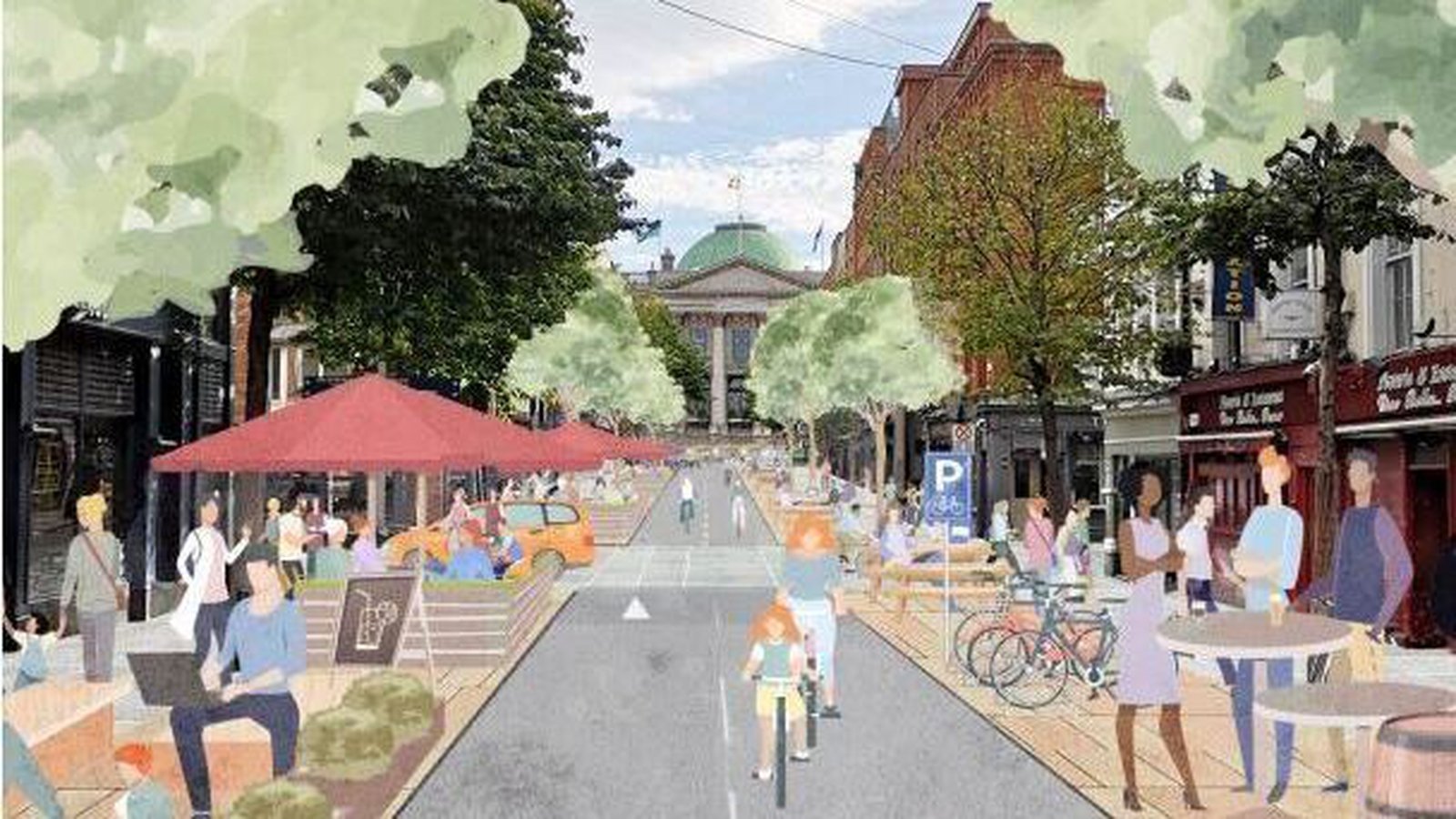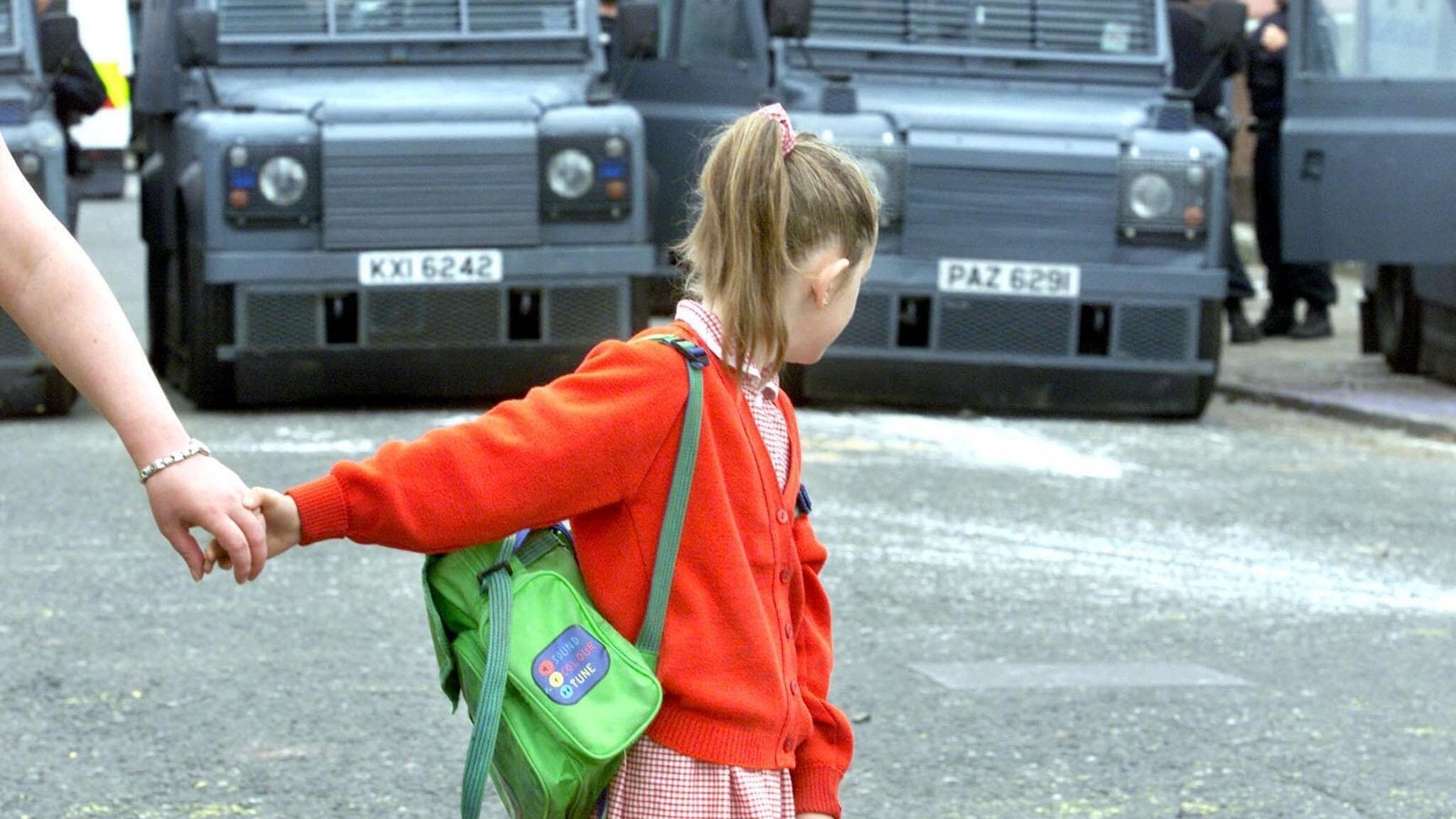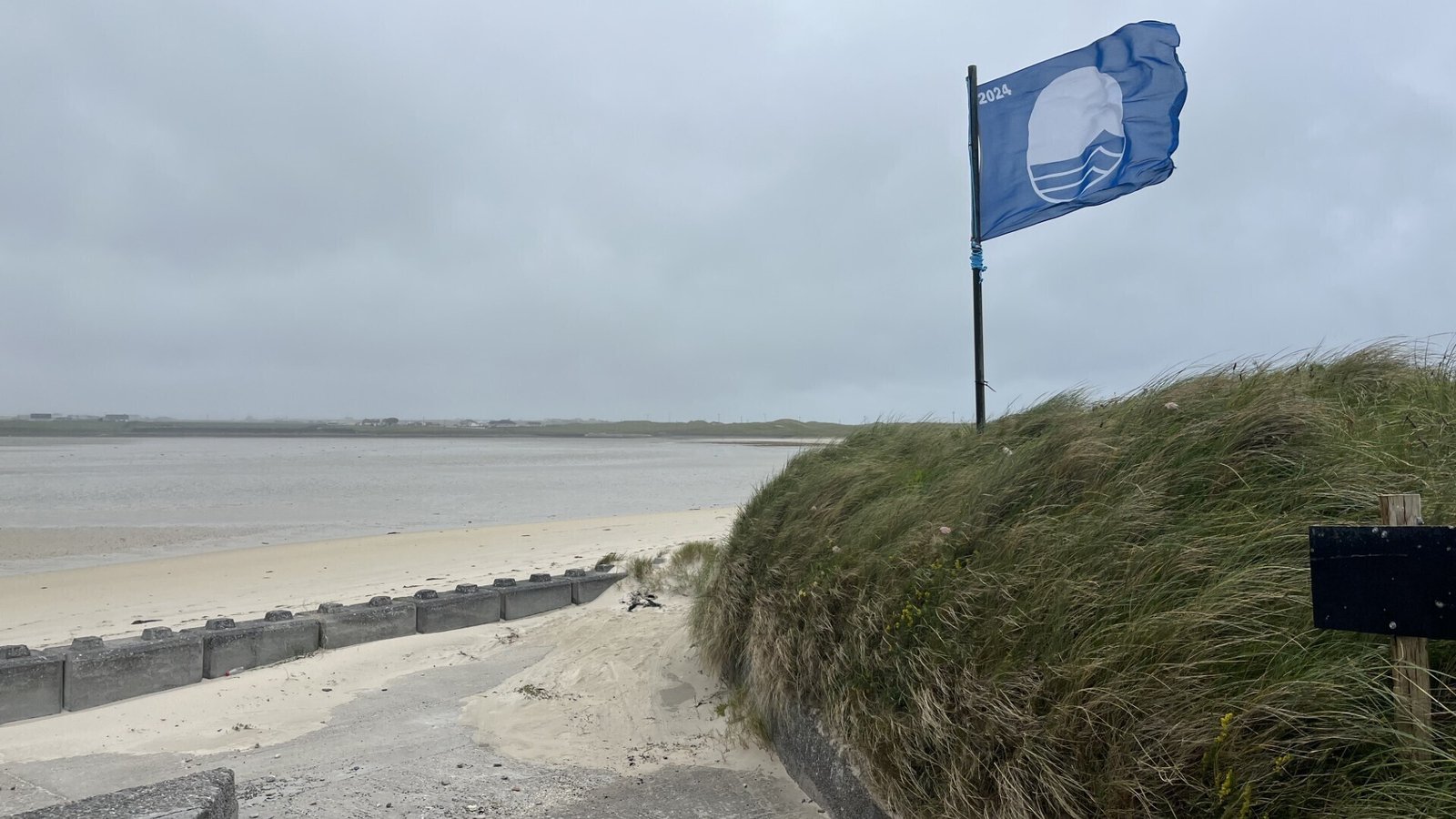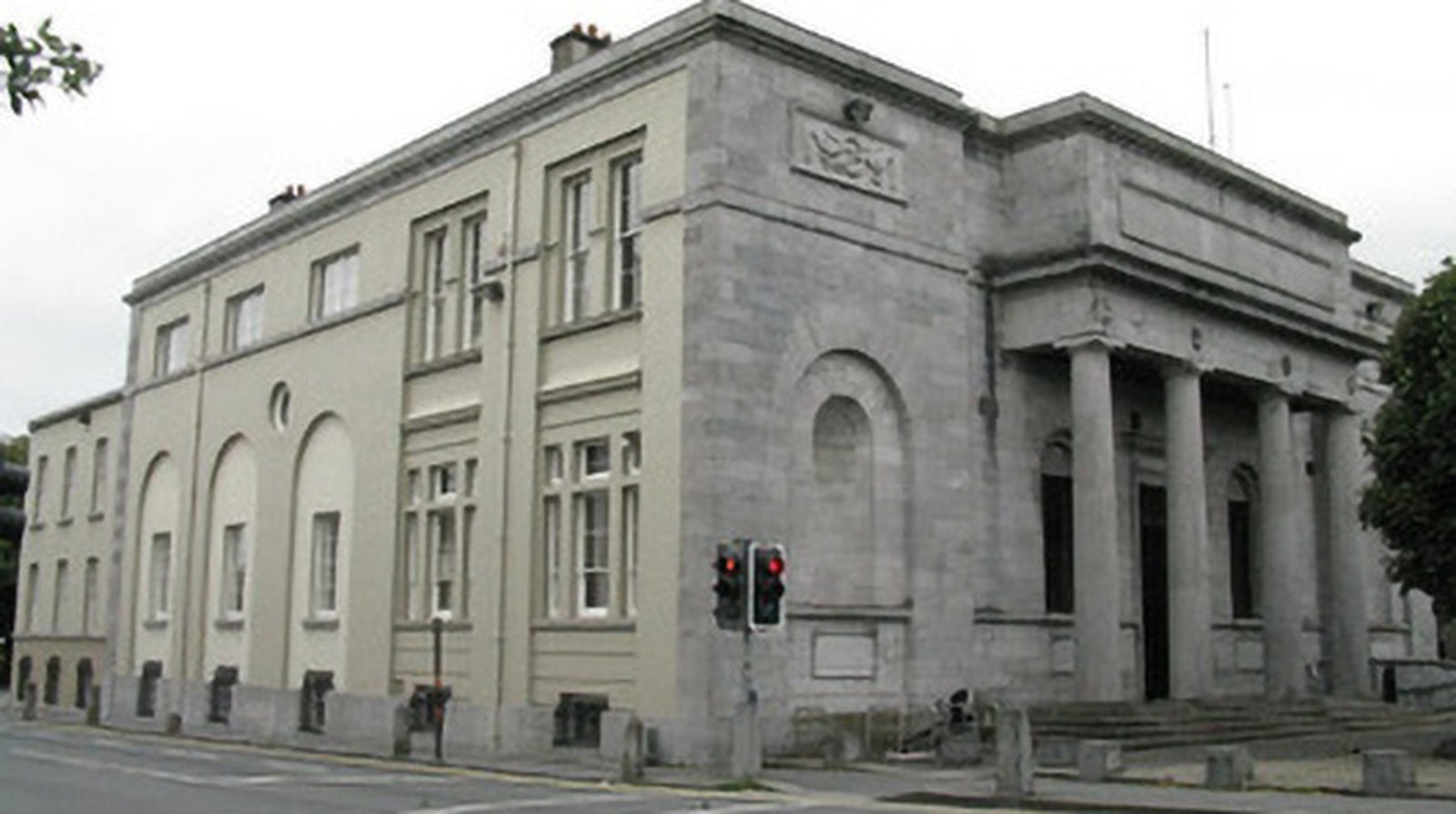The Irish keeping peace in a time of war
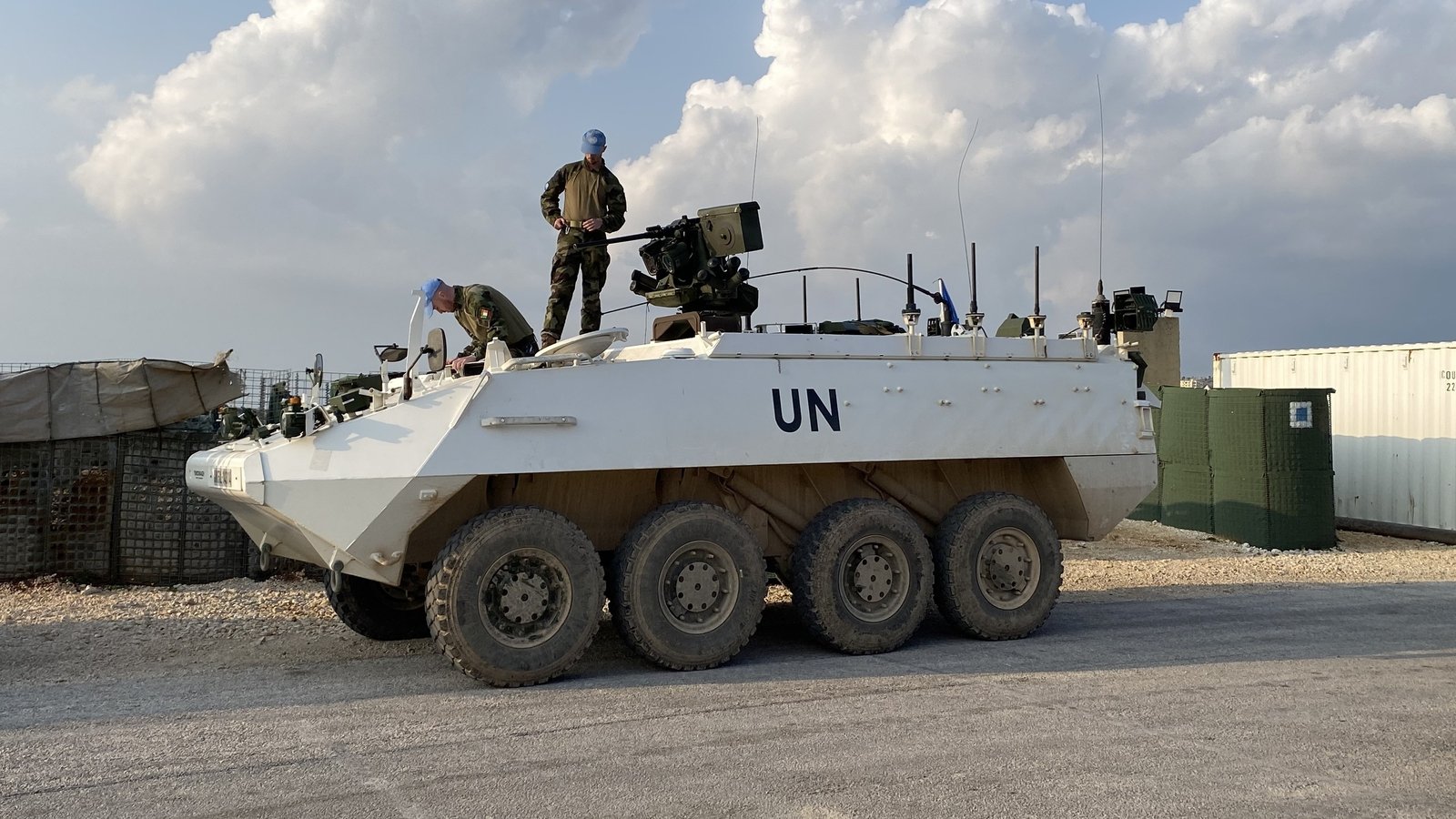
It was just before 8am when the first rocket went off.
It was followed by another, then another and another, a series of deafening explosions.
I was eating an army breakfast of porridge and hard boiled eggs in the cookhouse of Camp Shamrock when the first blast sounded.
I looked up, a tannoy rang out and then a shout went up.
“Groundhog…Groundhog” the codeword to take cover in defensive bunkers.
It was the signal to get on my UN issued flak jacket and helmet, grab my respirator and run like hell.
There are bunkers situated all across the camp. They are made from thick padded material filled with stone chipping and designed to protect against shrapnel or a misfired rocket.
The blasts kept coming as we ran, a soldier grabbed by bag to move me on quicker and we ducked inside a bunker with the explosions still going off.
In all, 37 rockets were fired one after another, from a position just 900m from behind the camp towards Israel.
The UN troops in the camp are not the target, but the rockets used by Hezbollah are inexact, they are fired at an angle from a rail and can sometimes misfire, or drop short of their target putting the lives of soldiers and civilians in danger.
Within seconds of being launched, Israel’s Iron Dome weapons system kicked in and shoot down the rockets posing a threat to Israel.
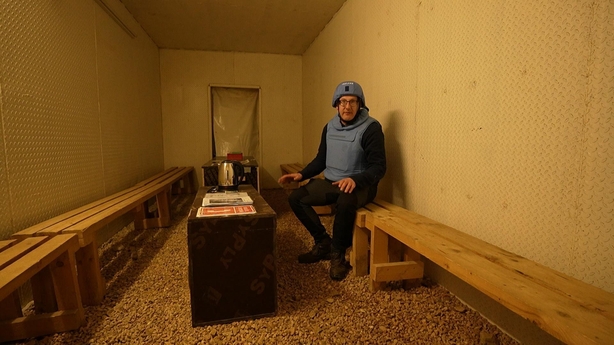
The system is calculated not to waste resources on rockets which are not going to harm Israelis.
When the rocket attack was over, the soldiers inside the bunkers sat and waited.
At a command bunker, senior officers and a team of tactical operators assessed the situation.
They accounted for each soldier and dealt with the civilians who had arrived at the gate of the camp seeking shelter.
An attack like this will usually provoke a counter strike by Israel which could send its fighter jets to launch a missile at the rocket launching site, with a view to taking out any Hezbollah operatives in the area.
Hezbollah has a powerful presence in this part of south Lebanon.
In the towns and villages close to the border there are large posters of their martyred dead, the fighters killed by Israel.
The Irish peacekeepers working in the area are careful to avoid these towns when funerals are taking place and emotions are running high.
Read more:
Irish troops in Lebanon take shelter amid rocket fire
Irish peacekeepers observe Israel use white phosphorus
Irish troops preparing for escalation of violence in Lebanon
In a country like Lebanon, where firearms are commonly carried, you don’t want to find yourself as the interloper in the narrow streets of a crowded village where anger, guns and tears are a dangerously potent mix.
During my assignment in Lebanon, I witnessed three Israeli air strikes in the valleys below Camp Shamrock.
A faint whoosh, then a thud and plumes of black grey smoke rise from the ground as the missiles strikes their targets.
As I took out my phone to grab some footage of the aftermath of one of the strikes, a soldier pointed me to higher ground where I would get a better view.
As we watched the unfolding chaos together, he said to me “you know the thing you have to remember here is that somebody has probably been killed over there” and that is part of the surrealism of life in south Lebanon.
One minute you are eating breakfast, or drinking a coffee, the next you are sheltering from bombs in a bunker.
Many of the homes in the towns and villages of south Lebanon are lying empty, or are half built.
Tens of thousands of people have left the area, fleeing further north to safety.
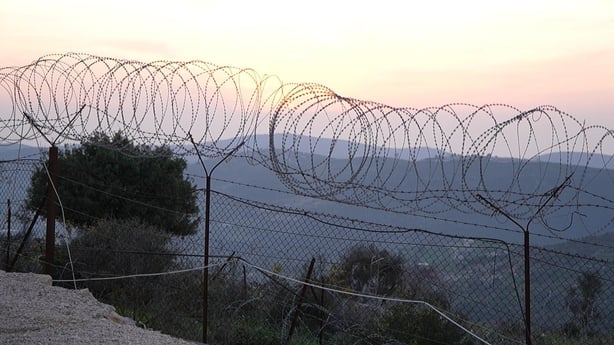
It is the same story in northern Israel where civilians have gone south to escape from Hezbollah rockets.
In Lebanon, the civilians are the double victims of a currency crash which has decimated the economy and now the daily attacks back and forth across the border with Israel.
For the Irish soldiers working with the UN, the job of peacekeeping is being challenged every day.
It is impossible to keep the peace in a country teetering on the brink of war.
However, as the chief of staff of the Irish Defence Forces Lt Gen Sean Clancy puts it, Irish troops “the eyes and ears for the international community in Lebanon”.
“Our presence contributes to stability in the region and provides time and space for diplomacy” he says.
The peacekeepers in Lebanon strongly believe if they were not there, order would collapse, and the situation would become much, much worse, with many more lives lost.
Ireland contributes 332 members to the UN peacekeeping force in Lebanon.
They serve alongside Polish, Maltese and Hungarian soldiers in their area of operation.
Their job is to provide objective and verifiable information on what is happening in the region.
This includes monitoring incursions by Israel, and attacks by Lebanese militant groups including Hezbollah.
Camp Shamrock is perched almost a 1000m above sea level.
It is perfectly positioned for observation of the surrounding area.
From its vantage point one can see as far as the Mediterranean, right to the Israel border, and observe many of the towns and villages in the region.
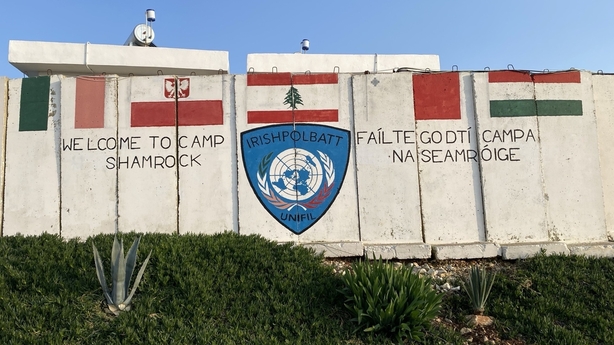
It seems unusual then, that UN peacekeepers there are not equipped with a system of observation cameras at the base to assist them with their duties.
The Irish have had a presence in Lebanon since 1978, the longest record for unbroken service in the United Nations.
Such are the roots of the peacekeepers in Lebanon that the traders outside Camp Shamrock, selling goods to Irish soldiers will greet them in Irish and speak to them in a Cork or a Dublin accent.
The Irish soldiers working with the UN try to maintain a good relationship with locals, by meeting civic leaders, providing first aid courses and English lessons to locals and facilitating funding for projects like football pitches and street lights.
However, the strength of Hezbollah in southern Lebanon is growing and some view the UN with suspicion which can lead to tensions between locals and the troops.
Since 7 October, when Hamas attacked Israel, followed by the subsequent Invasion of Gaza by Israel, tensions in Lebanon escalated significantly.
Hezbollah began firing rockets, attacking and killing Israelis in support of Hamas.
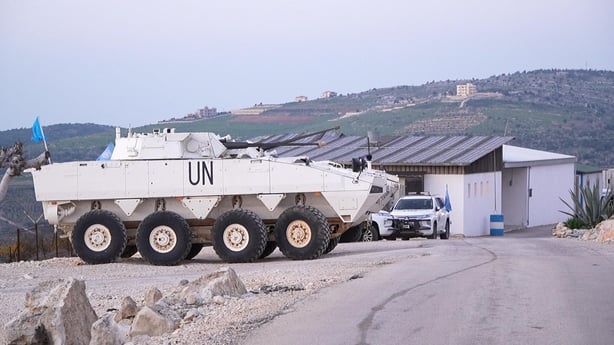
Israel hit back with air and drone strikes on targets in Lebanon.
In all almost 300 people have died and tens of thousands have been displaced from their homes.
Israel has said it wants to facilitate the return of its civilians to their homes in the towns and villages of northern Israel which are close to the border with Lebanon.
The Lebanese fear this will lead to an Israeli invasion of southern Lebanon, to push Hezbollah back north of the Litani river.
Lieutenant Colonel Stephen Mac Eoin, the commander of the Irish and Polish Battalion in Lebanon says a full scale war is a possibility and his troops are preparing for it.
However, hope still remains that if there is a ceasefire in Gaza, tensions in southern Lebanon would also be dialled down, and the fragile peace which existed prior to last October might be restored.
Lt Gen Sean Clancy points out that Defence Forces personnel have faced situations like the current conflict before, in 2006 and throughout the 1980s and 1990s.
“Our troops are experienced in the region, are well trained, well led and well equipped” he said.
That is certainly the case, but the Lebanon-Israel border is now the most volatile frontier in the Middle East.
The Irish serving there may well need every second of their experience, every hour of their training and every ounce of their equipment as they prepare for the difficult and uncertain months ahead.

